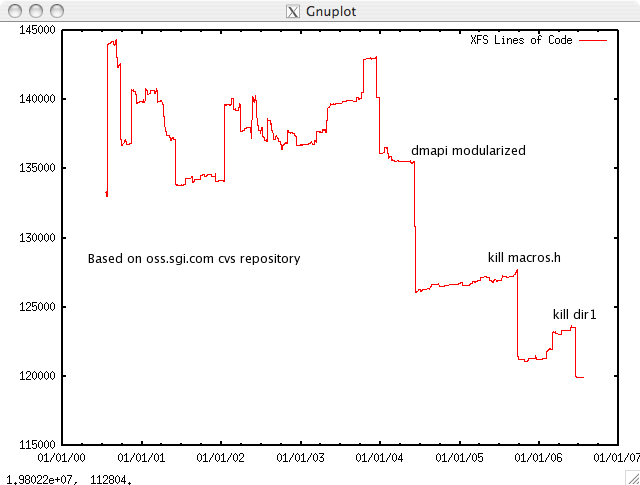Good Bye Pluto
So, Pluto isn’t a planet anymore!
So, few hours ago, I watched Stargate SG-1’s episode number 200, aptly named “200.” It was a rather odd episode, which by itself wouldn’t have been that interesting if it wasn’t for all the references to a very large number of sci-fi shows. The two truly amazing references were to:
Overall, very funny episode - even though there was very little plot :)

Someone I know sent me this link. It is an interesting program that appears to make tunneling traffic though ICMP Echo Requst and Response packets easy. I have heard of the idea before, and I was thinking that one day if I got bored, I’d do it. Well, I guess I don’t have to :)
So, last night I watched episode 5 of Stargate SG-1’s 10th season. This concludes my last marathon of SG-1 watching as there are no episodes left to watch! From now on, I have to wait until new episodes are aired. :)
So, we (Rob and I) drove to the beach right by the university. And stared at the sky for few hours. We saw a number of meteors — I’d categorize them into 3 groups:
I saw many of the “good” ones, about 10-15 of “great” ones, and 1 awesome one. The awesome one was across most of the sky, and toward the end it broke up (giving off that flash of light). Meteor showers are really great.
So, I’ve been getting a lot of comment spam lately — you can’t see it because I moderate it all. It is not a fun activity, so I looked at the available anti-comment spam plugins for wordpress. I have only one thing to say: They all suck. I looked at at least 7 different ones, which were neat in different ways, but they all suck. They force you to modify some “magic” php files. Sure, I understand the code, but the thing I don’t understand is the fact why? I’m no wordpress expert, but I am sure that there is a way to hook into it somewhere. This would easily allow me to upgrade wordpress at will without the fear of having to re-“apply” these hacky “plugins.” Shame. If I didn’t have an aversion to PHP, I might have written one, good one myself. I hope that the plugin authors/the wordpress folks see this, and fix it.
This weekend, there will be a meteor shower — the Perseid meteor shower. Meteor showers are called after the constallation from which they seem to originate. This “origin” is only an illusion of course. The perseid meteor shower is called after the constallation Perseus. Unfortunately, the moon will be nearly full and that will make the meteors less visible. It, however, should still be fun.
So, go outside on the 12th after sunset and look up and watch the stars fall :)
So, I was in #linuxfs on OFTC, and a whole discussion happened about XFS and ext3. Eric Sandeen was working on fixing up few bugs in ext3 to make it work on 16TB of storage. I couldn’t help but mention XFS. The discussion then evolved into XFS is a large pile of code that is really nasty in places (I do agree with that) but it still performs very well. Eric pasted a link to this image (I copied it for archival purposes.) which shows the code size of XFS over time. It is actually kind of scary.

You can look at this post as either a sequal to a post I made few days ago, or as another sequal to a post I made about a year ago.
So, while doing some more cleanup, Dave Quigley discovered this gem in Unionfs:
for (bindex = bstart - 1; bindex >= 0; bindex--) {
err = copyup_file(dentry->d_parent->d_inode,
file, bstart, bindex,
file->f_dentry->d_inode->i_size);
if (!err)
break;
else
continue;
}
The particular piece of interest is the if statement:
if (!err)
break;
else
continue;
What does it mean? If there is no error, we break out of the loop. Makes sense. If there is an error, we go to the top of the loop. Makes sense…right? Well, what happens if you reach the end of a for loop? We go to the top of the loop! See the brain damage? We are at the end of the loop, so we don’t need an explicit continue statement.
Here’s the if statement the way it should be (for completeness):
if (!err)
break;
Oh, so simple, it almost brings a tear into one’s eye.
Powered by blahgd